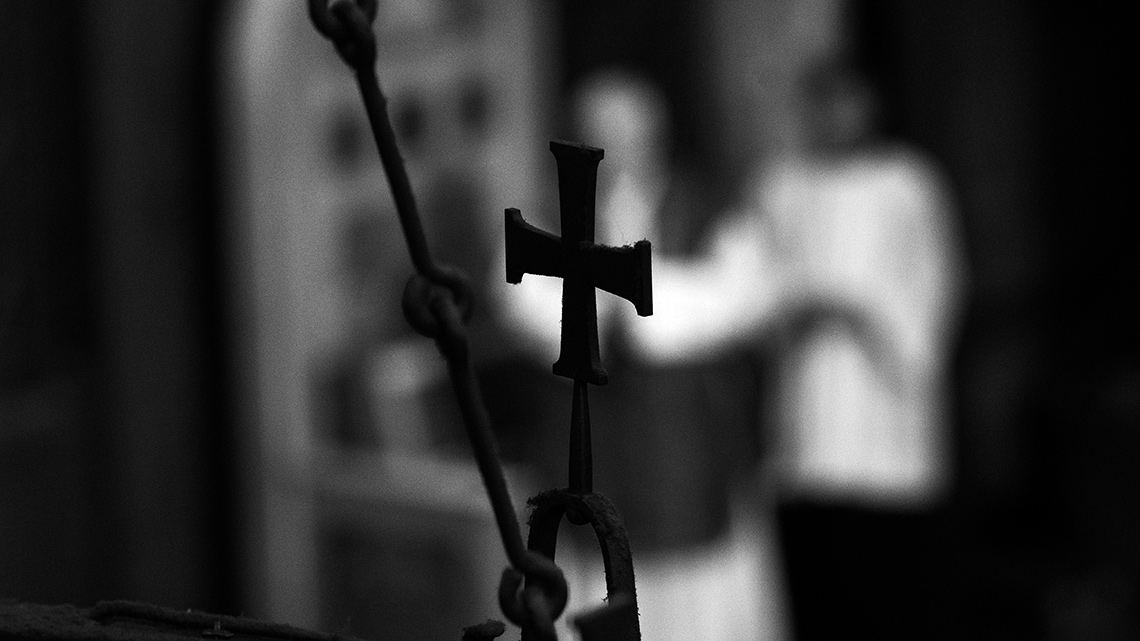
By Cardinal Vincent Nichols
Today the churches will be full. That may not be so every Sunday, but today is different. It is one of those key days, along with Ash Wednesday, when an instinct, lodged deeply in the human soul, finds expression. Ash Wednesday and Good Friday, in their different ways, bring out an acknowledgment of the presence of a reality in life greater than our own ego, our plans, our victories, great or small.
Westminster Cathedral is full to capacity on Good Friday for the celebration of the death of Jesus Christ, crucified over 2,000 years ago. Liturgy such as this cuts across time. Today we know the reality of that singular event and, in its liturgical celebration, enter into its continuing presence in our midst.
At the start of our liturgy, we pray that just as we bear the image of the man of earth, so by the work of God’s grace, we may bear the image of the Man of heaven. Then the work begins. The Gospel narrative is sung with solemn beauty, for it tells of the coming of that saving grace. Prayers are said, bringing to God the troubles of this world. Then, with great solemnity, the Cross of our Saviour is carried, into our midst. ‘Come let us adore him’.
When the formal ceremony is finished the procession of people coming to the foot of the Cross, to touch or kiss the figure of Jesus, continues uninterrupted for a further two hours or more. I always return to watch and share in these unique moments, amazed and deeply moved by the astonishing disclosure taking place before me. Every person who steps forward, having waited patiently for a long time, seems to hold themselves up to the figure of Christ. There is no hiding, no simulation, no awareness of the crowd around them. For this moment they are there, before the one they profess to be their Lord, in a moment of utter intimacy. In a simple gesture, unguarded and profound, each person seems to lay before the Lord their vulnerability, their limitations, their weakness – in a word, their humanity. They entrust themselves to this Jesus, held before them in death, for they know that he alone will rise, that death has no hold over him. They know that from him will flow the gift of a love that is stronger than death itself.
Later we will say: ‘Behold the Lamb of God who takes away the sins of the world’. This has to be understood. These words do not imply some easy solution to the failings of each one, nor to those of our broken world. Rather, this ‘Lamb of God’ ‘takes up’ the sins of the world and invites us to bring our burdens to him so that he can be with us as our struggles continue. With him at our side, within our hearts and spirit, what previously threatened to crush us, can become not only more bearable, but, not infrequently, a source of our healing.
The traditional saying that a burden shared is a burden halved, this day takes on an even deeper meaning, for the one who picks up and shares that burden of sin, is able to bear its full weight, even though it crushes him to death. Yet he will rise!
These thousands of people will leave Westminster Cathedral in a somber yet joyous mood. Each one of us has faced our true selves. Each one of us has seen the way forward, a way that asks for our greatest effort and yet carries in it our greatest hope. We are indeed Pilgrims in Hope. And, in one form or another, this is repeated in every church in this land and throughout the world. Here, then, is a moment of great renewal.
Those who come forward do not leave to one side their work, their professional endeavours, their public roles. They bring their whole selves into this meeting, into this exchange of vulnerability, in which heart speaks unto heart. So while this moment is one of intense interiority, its impact is for the strengthening of every endeavour in service of our society. Religious belief is not a private hobby. It is deeply engrained in the human soul. Days like today, this Good Friday, are given so that these most profound dimensions of our human nature may be acknowledge and included in striving to improve our lot, to protect the vulnerable, to recognise our frailty and mutual dependence, to generate shared resources, to construct pathways of reconciliation and peace. In this lies our true greatness. Good Friday can help to make us great again for it is the fount of our deepest hope and of the undying belief in the dignity of every one of God’s children.